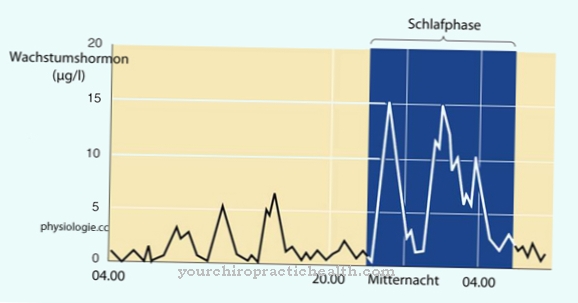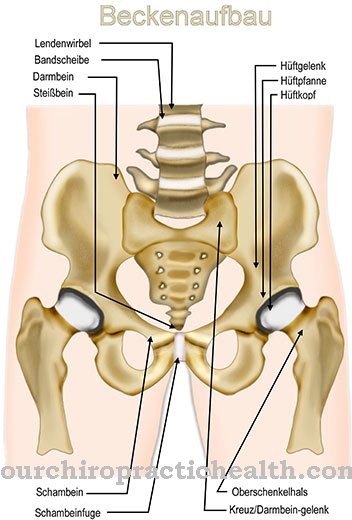Weight plays an important role in pregnancy. Is it okay to gain ten kilograms? What weight gain is normal, too much or too little? Doctors keep leading Weight checks during pregnancy by. The main reason for this is that the expectant mother does not endanger her or her child's health.
Why you need to gain weight
The fact is, women will gain weight during pregnancy. This process is foreseen by nature. The body grows, changes and ultimately has to ensure that it supplies a second person with nutrients. The weight gain is composed as follows:
- The weight of the child - at birth - averages 3300 grams (+3.3 kilograms).
- The uterus gains about 900 grams (+0.9 kilograms)
- The placenta has an average weight of around 600 grams (+0.6 kilograms).
- The pregnant woman's breasts are on average 400 grams heavier (+0.4 kilograms) and the blood volume increases to around 1200 grams (+1.2 kilograms).
- The body also contains more fluid (around 2600 grams + 2.6 kilograms) and needs more fat reserves (around 2500 grams + 2.5 kilograms).
All of these factors cause weight gain that is in the average range of 11.5 kilograms. However, this is an average weight gain; the actual recommended weight gain is determined by the doctor. That depends on the body mass index (BMI) and the starting weight of the pregnant woman.
How much can pregnant women gain?
Of course, how heavy the woman was before pregnancy also plays a role. Anyone who was thin before pregnancy is likely to put on more weight than a woman who had more weight on her ribs before pregnancy. The body mass index - the BMI - also applies during pregnancy. If the woman was underweight before the pregnancy (the BMI is less than 18.5), the doctor recommends gaining between 13 and 18 kilograms. In the "normal weight" range (the BMI is between 18.5 and 24.9), the doctor recommends weight gain between 11 and 16 kilograms. If the woman was in the "overweight" category (the BMI is between 25.0 and 29.9), she should gain between 7 and 11 kilograms. If you are obese (the BMI is greater than 30.0), the weight gain should be between 5 and 9 kilograms.
Obesity in pregnancy
If an overweight or obese woman becomes pregnant, she should pay more attention to her weight. Ultimately, being overweight also increases the risk of various complications. For this reason, it is advisable to lose weight before having children in order to avoid numerous risks and complications.
Because overweight or obese people have an automatically increased risk of placenta inflammation or an increased risk of malformations in the child (functional disorders of the organs or neural tube defects).
Occasionally, overweight or obese people have to have caesarean sections or birth injuries can occur, since the children of overweight and obese people are significantly heavier and larger. Sometimes the risk of miscarriages, metabolic disorders, preeclampsia and gestational diabetes also increases.
Ultrasound examinations can only be carried out under difficult conditions (preferably only vaginal ultrasound examinations, since no images are possible via the abdominal ultrasound) or there is an automatically higher load on tendons, muscles and joints.
Studies have also shown that overweight or obese mothers pave the way for their own child to become obese. Whether the child's overweight is actually “predetermined” or “shaped” in the womb cannot be said 100 percent.
Weight control despite cravings - nutrition tips
In the end, it is advisable to enjoy a sensible diet and not necessarily to eat “for two”. Pregnant women need an average of 2500 calories a day - a higher calorie intake automatically leads to more weight gain. Around ten percent of the calories should come from proteins.
These include fish, meat and legumes. 35 percent of the necessary calories should be obtained from various dairy products (cheese, butter, oil, nuts). Carbohydrates should give women 55 percent of the necessary calories. These include potatoes, rice, cereals as well as pasta and bread). Of course, it doesn't hurt if the pregnant woman occasionally eats chocolate or other sweets. However, this should be pursued with measure and aim.
Women should mainly consume whole grain products during pregnancy. Eating a healthy diet not only helps keep you full, but also helps you keep weight gain under control. Fast food, desserts and "unhealthy snacks" such as chips should therefore only be eaten rarely - for the benefit of the body and also for the health of the child. Anyone who suffers from gas should be careful not to consume any foods that cause gas.
No diets during pregnancy
It is important that - even if you have gained weight too quickly - not start a diet during pregnancy. During pregnancy, care should be taken not to go hungry or pay attention to your figure. It is normal for the weight to increase. That process is predetermined by nature. If you gain weight quickly, you should consider changing your diet. Diets, on the other hand, are taboo as there is a risk that the unborn child will be undersupplied.




























